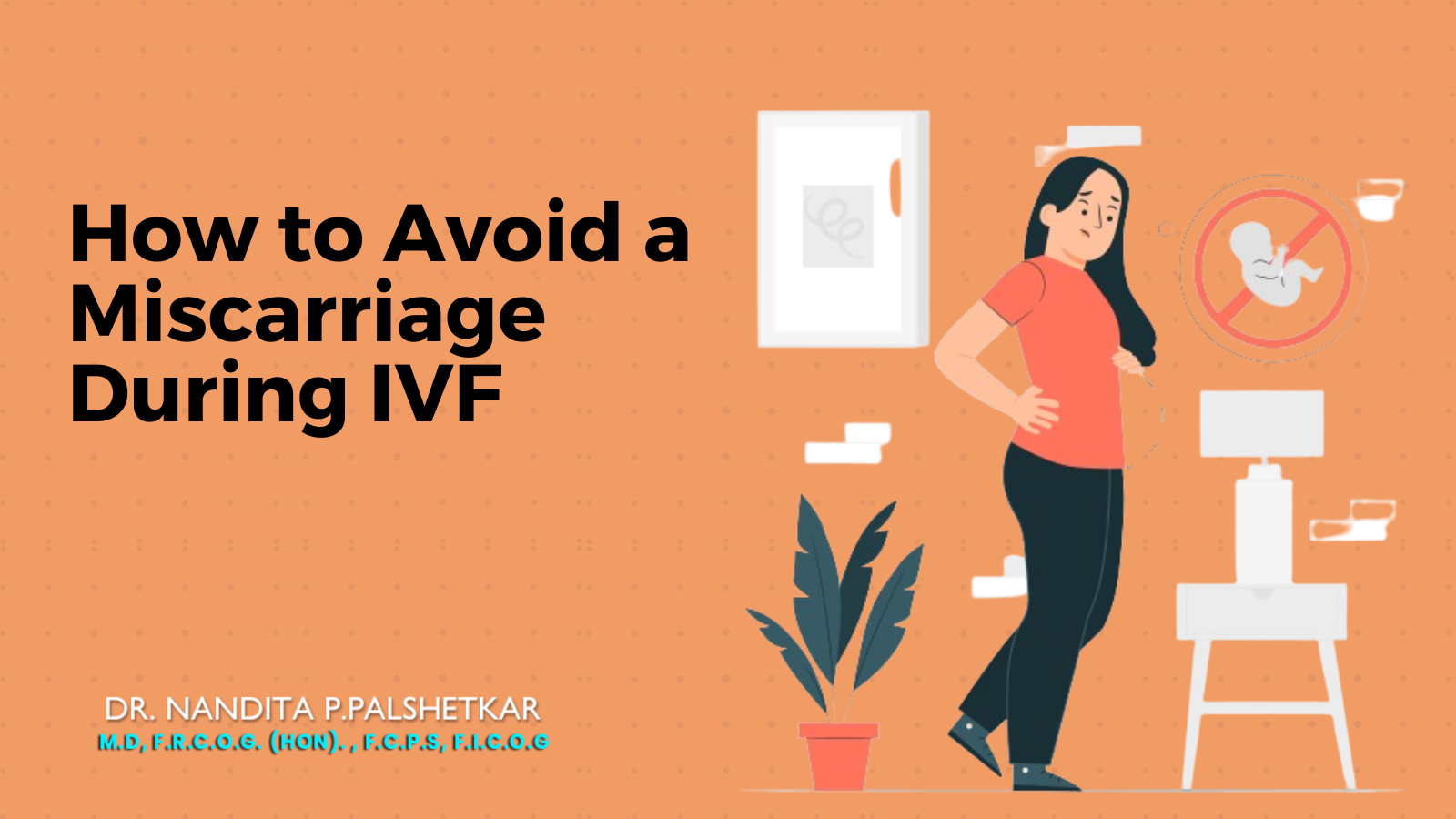Miscarriage refers to the loss of a foetus within the 20th week of pregnancy. It can be a traumatic event for all parents-to-be. Still, for those trying to conceive through IVF, the impact is more significant due to the increased physical, emotional, and financial investment into your journey toward parenthood.
This blog provides vital insights for parents-to-be on how to avoid miscarriage during IVF. Learning about the causes and signs of miscarriage and adopting steps, both proactive and otherwise, can go a long way in ensuring a successful full-term pregnancy for you.
Causes of Miscarriage in IVF
The causes of miscarriage in IVF can be attributed to several medical factors and lifestyle factors. They include:
- Age: For women above the age of 35, the chance of miscarriage increases due to fewer healthy eggs and a higher risk of developing health conditions that adversely affect pregnancy, such as endometriosis and uterine fibroids.
- Chromosomal Abnormalities: These are genetic defects caused by the incorrect number of chromosomes in the embryo.
- Uterine Anomalies: Defects in the uterus’s form and structure can make it difficult for proper implantation and development of embryos.
- Hormone Imbalance: Low progesterone hormone levels or conditions such as Polycystic Ovary Syndrome (PCOS) can negatively impact pregnancy.
- Pre-existing Health Conditions: Expectant mothers with diabetes, thyroid, and autoimmune diseases are at a higher risk of miscarriage.
- Lifestyle Habits: Poor nutrition, excessive caffeine, smoking, alcohol, and substance abuse are known to cause miscarriage.
Signs of Miscarriage in IVF
If you experience the following symptoms after IVF, you must seek medical help at the earliest as early detection of any complications allows your doctor to take precautionary steps to prevent miscarriage.
- Heavy bleeding
- Formation of clots
- Severe abdominal pain
- Reduced pregnancy symptoms
Proactive Steps to Prevent Miscarriage During IVF
When it comes to preventing miscarriage in IVF, there are specific steps that you can take to decrease the chance of a miscarriage considerably. These include:
Lifestyle Adjustments
Adopting the following healthy lifestyle habits ensures a healthy and successful pregnancy:
- Have a healthy and balanced diet
- Exercise regularly
- Avoid smoking and drinking alcohol
- Control your stress levels with breathing techniques, meditation, or yoga
Medical Considerations
Proper diagnosis and management of chronic and other medical conditions that can adversely impact your miscarriage chances is essential. Before starting your IVF treatment, you can take a comprehensive pre-IVF evaluation to identify and address the following underlying health issues:
- Thyroid level abnormalities
- Uterine growths, blockages, and other irregularities
- Blood disorders
- Hormone imbalance
- Autoimmune diseases
Important Steps to Avoid Miscarriage During IVF
In your IVF journey, you must equip yourself with effective strategies that can help you avoid a painful miscarriage. They include:
- Reputed IVF Clinic: Ask for referrals from family, friends, and acquaintances, or access reliable websites for customer reviews and ratings. The team of doctors must have the required training and experience to provide the most advanced, compassionate, and personalised IVF treatment plans with a high success rate.
- Preimplantation Genetic Testing (PGT): It detects chromosomal and genetic abnormalities in the embryo and enables your physician to select healthy embryos for the procedure. For high-risk genetic abnormalities, using a donor egg/sperm or frozen embryos can be a more viable option to reduce miscarriage risks.
- Medications and Follow-Ups: Your doctor may prescribe medicines and hormone supplements to support your pregnancy that you must take without fail. Also, for regular monitoring, you must follow up according to your doctor’s advice. This helps in the timely detection and intervention of pregnancy-related complications.
- Emotional Support: The IVF procedure can be overwhelming physically and emotionally and is fraught with several challenges that can impact your pregnancy. Your family’s support is crucial. You can seek professional therapy or join a support group for added emotional support.
- Final Word: When you start your IVF treatment, your priority is to ensure a safe and successful pregnancy. While miscarriage in IVF is a possibility, you can minimise miscarriage risks in your IVF journey by educating yourself about its causes and how to detect its early signs, and adopting effective proactive and other steps that reduce your risks of suffering a miscarriage by several notches.
Minimise Miscarriage Risks with Quality IVF Treatment with Dr. Nandita Palshetkar
If you are looking for a highly acclaimed fertility specialist near you or seeking one of the best IVF doctors in Mumbai, consult Dr. Nandita Palshetkar. One of the pioneers in IVF treatment in India, she has over 30 years of experience and expertise in her field. She provides the highest standards of personalised treatments for an array of fertility disorders with compassion and care.
Contact us today for a free consultation or to book an appointment.


